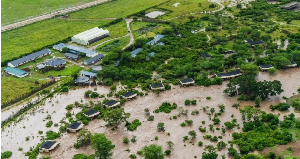Business News of Thursday, 4 May 2017
Source: thefinderonline.com
Africa Attractiveness Index: Ghana rises to 4th position
Despite having a 31.7 per cent decline in Foreign Direct Investment (FDI) projects in 2016, with weak economic growth in recent years, Ghana, West Africa’s second largest economy remains a key FDI market, the latest Africa
Attractiveness report has revealed.
Dubbed Africa Attractiveness Index (AAI), the report authored by Ernst & Young (EY), said “the country’s improving macro-economic environment and strong governance track record has seen Ghana rise to fourth position in the EY Africa Attractiveness Index (AAI).”
The index was introduced in 2016, to measure the relative investment attractiveness of 46 African economies based on a balanced set of shorter and longer-term metrics.
Still in West Africa, Cote d’Ivoire also featured in the top 10 of the AAI, and with a 21.4 per cent jump in FDI projects in 2016, illustrating that it’s becoming a country more favoured by investors.
Senegal, according to the report emerged as a potential major FDI destination although this is not reflected in its current FDI numbers.
The West African country ranked strongly on the AAI 2017, taking ninth position, due to its diverse economy, strong strides in macro-economic resilience and progress in improving its business environment.
Egypt, Kenya, Morocco, Nigeria and South Africa (the key hub economies) collectively attracted 58 per cent of the continent’s total FDI projects in 2016.
South Africa remains the continent’s leading FDI destination, when measured by project numbers, increasing 6.9 per cent. Morocco regained its place as Africa’s second largest recipient with projects up by 9.5 per cent, followed by Egypt, which attracted 19.7 per cent more FDI projects than the previous year.
The report provides an analysis of FDI investment into Africa over the past ten years. The 2016 data showed Africa attracting 676 FDI projects, a 12.3 per cent decline from the previous year, and FDI job creation numbers declined 13.1 per cent. However, capital investment rose 31.9 per cent.
The surge in capital investment was primarily driven by capital intensive projects in two sectors, namely real estate, hospitality and construction (RHC), and transport and logistics.
The continent’s share of global FDI capital flows increased to 11.4 from 9.4 per cent in 2015 making Africa the second-fastest growing FDI destination by capital.
Commenting on the findings, Africa CEO at EY, Ajen Sita was quoted as saying “this somewhat mixed picture is not surprising to us. Investor sentiment toward Africa is likely to remain somewhat softer over the next few years.
This has far less to do with Africa’s fundamentals than it does with a world characterised by heightened geopolitical uncertainty and greater risk aversion.
Investors with an existing presence in Africa remain positive about the continent’s longer-term investment attractiveness, but they are also cautious and discerning.”











